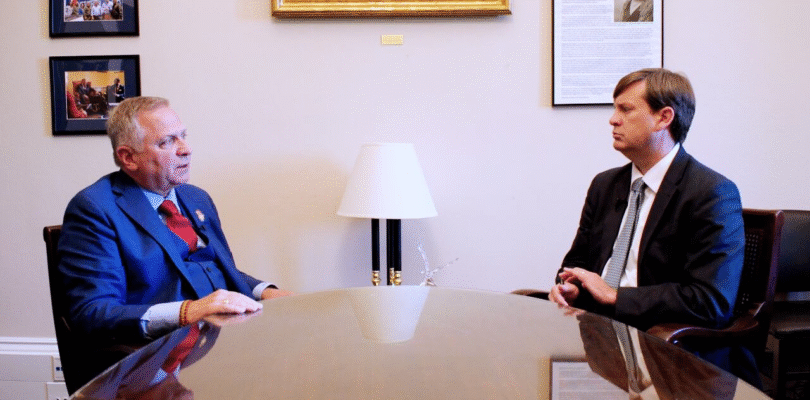House Veterans’ Affairs Chairman Mike Bost doesn’t know what the full impact of cutting tens of thousands of federal workers from Veterans Affairs payrolls will be, but he is confident it won’t cripple the department.
“The amount of people who have been let go so far is minimal,” the Republican congressman from Illinois said during a recent sit-down with Military Times. “I trust [VA Secretary Doug Collins] when he has said that no one is going to lose their benefits. We’re going to provide good, quality care.
“What we’re doing is we’re realigning VA so that can be done correctly, it can be done efficiently and in the best way for the veteran.”
Veterans Affairs leaders have announced plans to trim up to 80,000 staffers from the department’s workforce as part of broader efforts by President Donald Trump’s administration to reduce the size of the federal bureaucracy.
As department officials spar with congressional Democrats over the looming staff reductions, Bost’s role as chairman of the House’s primary veterans policy committee sits squarely in the middle of the conflict.
He has accused his Democratic colleagues of “fear tactics” for their insistence that cuts of that scope will take away veterans’ benefits and services. But he has also promised close scrutiny of plans from Collins and VA leaders to ensure that those predictions don’t come true.
“I trust Secretary Collins, but that doesn’t stop me from being the chairman that has oversight over this issue,” Bost said. “We will continue to do that. I have made the commitment to veterans around this nation that the services that they receive are still going to be quality services, hopefully better services, and hopefully done more efficiently.
“Remember this: veterans are not just veterans, they’re also taxpayers.”
VA plans to cut hundreds of payroll jobs at regional medical sites
Similar to Collins’ public statements, Bost said he believes the Department of Veterans Affairs is in need of fundamental changes after years of unchecked increases, both in terms of spending authority and employee hiring.
“Unfortunately, we’ve had an overgrowth of bureaucracy,” he said. “We do want change. We want to make it better. We want to make it better for the veteran. We want to make it so that money that we spend is spent wisely to provide for the veteran, not just to grow bureaucracy.”
About 480,000 federal employees currently work within the department, the majority in VA hospitals and medical centers spread throughout the country. That total is up about 20% from when Trump left office in 2020.
The workforce grew after years of increased pressures on VA operations, including a massive expansion of military toxic exposure benefits in 2022 that has led to record-high disability benefits applications and increases in medical visits.
Bost is pushing for increased access to community care appointments to help with that surge, a move that has prompted additional criticism from congressional Democrats for potentially taking away responsibilities and resources from VA.
But he’ll also have to oversee hearings later this spring on the staffing cuts, a showdown that is likely to inject even more political fights into the issue of veterans’ care.
“The question is, is that money being spent wisely?” Bost said. “We’re gonna do everything we can to make sure it’s spent the way it’s supposed to be.”




